
Finding Truths, Finding Self
Baroque violinist, composer, and singer-song-writer Rebecca Scout Nelson is among the most intriguing musicians on today's historical performance scene, finding her voice in both early music and sounds that are entirely personal and confessional.

Politics, the Performing Arts, and EMA’s 2025 Summit
From the Executive Director: 'Regardless of your politics, I think we can agree that the last few months have been chaotic for the performing arts, with a variety of new federal policies creating uncertainty around the funding we rely on.' But EMA's 2025 Virtual Summit will allow for a global gathering.
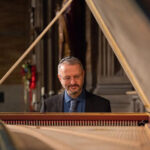
Yiddishkeit and Early Music
Keyboardist Byron Schenkman reflects on growing up Jewish and finding connections in early music. 'I sometimes wonder how different my experiences might have been if I'd had Jewish mentors in my early years.'
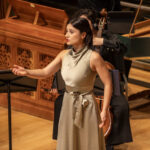
Marks on the Soul: Listening to Mariachi, Singing Lieder
Meet Andréa Walker, a silvery voiced soprano with a burgeoning career. Still a doctoral student, she balances research into gallant art songs with an ever-busier performance schedule. Her ensemble, Duo CPE, was part of EMA's Emerging Arts Showcase. Next week, June 11, they will join recent Showcase laureates for a concert at the Boston Early Music Festival.

CANTO: Low-Voiced Angels of Loveliness
A true contralto voice is rare and thus is often misunderstood or mistreated. In her Canto essay, a notable contralto makes the case for carefully nurturing what's as compelling a voice type as has ever existed on stage.
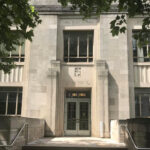
The Ups (and Downs) of Collegiate Early Music
Historical performance is on an upswing across the U.S., and standards have never been higher. But the future of the field is not so clear for the next generation. There's some growth at the collegiate level but, alarmingly, more than a few losses. What's the national picture?

MUSINGS: On Scholars Who Write for the Public
How do we keep up with what’s going on? In our field, it's the kind of writing that is variously called music journalism, criticism, public musicology, or haute vulgarisation. These terms all have in common that they're written by experts to be read by non-experts.

A Wish for the Future
This past summer I was honored to be elected board president of EMA. My wish for continuous expansion: our awareness of each other within the field, our scholarships and support for young talent, our reach and service to include Latin America, and the scope of our art to include historical traditions and practices from around the world.
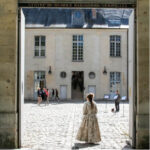
This Time, Versailles Starts the Revolution
Dedicated to research toward performances of French Baroque repertoire, Le Centre de Musique Baroque de Versailles encourages American musicians and scholars to travel to Paris for research or to hone their skills. Its resources are likely unmatched in the early-music world.
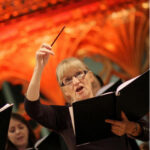
Canto: Singers as Community
Early music brings us together, since exploring long forgotten or ignored repertoire requires communities of knowledge and of specialized practice. The late soprano Deborah Roberts took this ideal to the highest level, connecting amateurs and professionals on both sides of the Atlantic.

